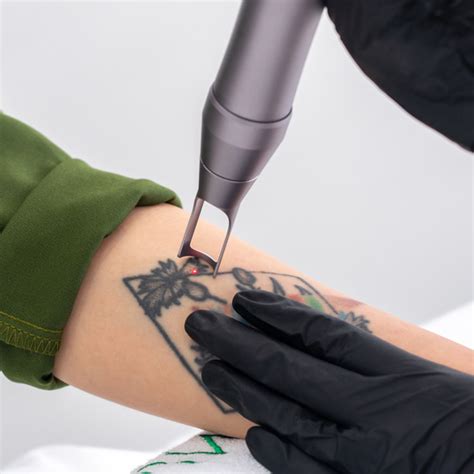Learn the Art of Laser Tattoo Removal: Technician Training
The burgeoning field of laser tattoo removal offers a rewarding career path for skilled technicians. More people than ever are seeking professional tattoo removal, creating a high demand for qualified professionals. But becoming a proficient laser tattoo removal technician requires more than just a certification; it demands rigorous training, a deep understanding of the technology, and a commitment to client safety and satisfaction. This comprehensive guide explores the essential aspects of laser tattoo removal technician training.
What Does Laser Tattoo Removal Technician Training Entail?
Laser tattoo removal technician training programs typically cover a wide range of topics, encompassing both theoretical knowledge and hands-on practical experience. A strong program will provide a solid foundation in:
- Laser Physics and Technology: Understanding the different types of lasers used in tattoo removal (e.g., Q-switched Nd:YAG, picosecond lasers), their wavelengths, and how they interact with tattoo ink pigments is crucial. This includes learning about laser parameters like fluence, pulse duration, and spot size, and how to adjust them for optimal results.
- Skin Anatomy and Physiology: A comprehensive understanding of skin structure, pigmentation, and healing processes is vital for safe and effective treatment. Technicians must be able to identify different skin types, assess potential risks, and adjust treatment plans accordingly.
- Tattoo Ink Chemistry: Different tattoo inks react differently to laser treatment. Training should cover the various ink compositions, their absorption properties, and how this impacts treatment strategies. Learning to identify ink types is also a critical skill.
- Treatment Protocols and Techniques: This section focuses on developing practical skills in performing laser tattoo removal procedures, including proper patient assessment, pre-treatment preparation, laser settings adjustments, and post-treatment care. Safe and effective technique is paramount.
- Client Consultation and Communication: Building rapport with clients, managing expectations, and providing thorough pre- and post-treatment instructions are essential for a positive client experience.
- Safety and Hygiene: Maintaining a sterile environment, adhering to strict hygiene protocols, and understanding safety procedures are critical to prevent infections and complications. This includes proper disposal of medical waste.
- Troubleshooting and Complications: Training should cover common complications, such as hyperpigmentation or hypopigmentation, scarring, and infection, and how to manage them effectively.
- Regulatory Compliance: Understanding and adhering to all relevant health and safety regulations, licensing requirements, and ethical guidelines is non-negotiable.
What are the Different Types of Laser Tattoo Removal Training?
Training options vary, ranging from short courses to intensive programs. Some options include:
- Certification Programs: These programs provide a structured curriculum and often lead to a recognized certification, demonstrating competency to potential employers.
- Apprenticeships: Working alongside experienced technicians provides valuable hands-on experience, but may lack the comprehensive theoretical knowledge offered by formal programs.
- Online Courses: While offering flexibility, online courses often lack the hands-on training crucial for mastering laser technology.
How Much Does Laser Tattoo Removal Technician Training Cost?
The cost of training varies significantly depending on the program's duration, intensity, and reputation. Expect costs to range from several thousand dollars to tens of thousands.
How Long Does It Take to Become a Laser Tattoo Removal Technician?
The duration of training varies depending on the chosen program. Some programs may be completed in a few weeks, while others may require several months.
What are the Job Prospects for Laser Tattoo Removal Technicians?
The demand for skilled laser tattoo removal technicians is consistently growing, offering excellent job prospects for qualified professionals. Opportunities exist in medical spas, dermatology clinics, and specialized tattoo removal centers.
What are the Necessary Skills and Qualities for Success?
Beyond technical skills, successful technicians possess:
- Strong Attention to Detail: Precise work is crucial for effective and safe treatment.
- Excellent Communication Skills: Building rapport with clients and providing clear instructions are essential.
- Problem-Solving Abilities: Adapting treatment plans to individual client needs is a key skill.
- Patience and Empathy: The process can be lengthy, requiring patience and empathy towards clients.
In conclusion, becoming a proficient laser tattoo removal technician requires dedication, thorough training, and a commitment to client well-being. By investing in a quality training program and continually refining your skills, you can embark on a rewarding and successful career in this rapidly expanding field. Remember to research different programs thoroughly before making a decision and always prioritize safety and ethical practices.

